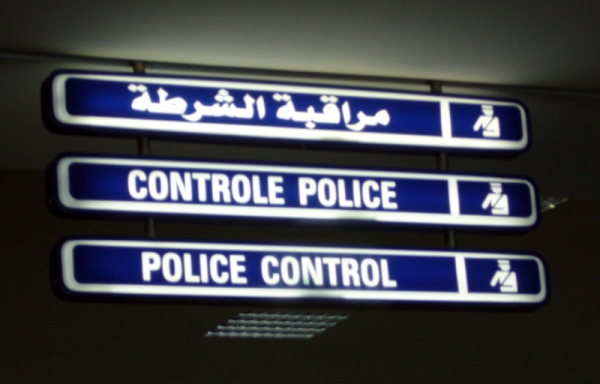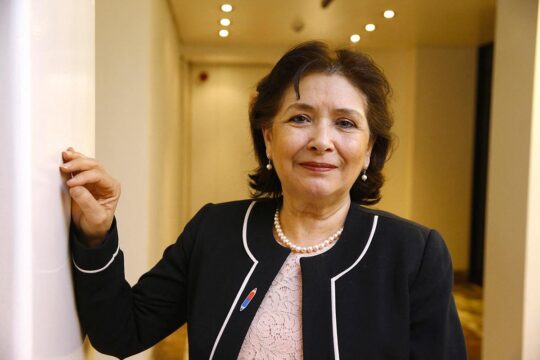Kaies Berrehouma died on October 5. Wanted by the police, he was caught by the anti-drug squad near his home in the Tunis suburb of Ouardia and beaten to death in the middle of the street, according to several witnesses. Sofiene Dridi was intercepted at Tunis Carthage airport on September 11 as he returned from Switzerland, in relation to a criminal conviction pronounced against him in absentia. He was held in the Mornaguia civil prison where he died on September 17, 2015 in “suspicious circumstances”, according to the latest report from the Organization Against Torture in Tunisia (OCTT). On July 27, five people suspected of belonging to a terrorist network were arrested. When they came out of prison on August 4, they filed a complaint for torture. Their lawyer Mahdi Zagrouba told Human Rights Watch that Ezzedine Ben Ali, one of his five clients who had a recent wound on his right shoulder and bruises on his sides, claimed police had subjected him to simulated drowning or “waterboarding” and the “roast chicken” technique (suspending the prisoner from an iron bar by the wrists and knees, so called supposedly because of its similarity to a roasting spit).
Repeated calls for candidates
“In the last five years, various Tunisian ministers have expressed their desire to eradicate torture,” says Halim Meddeb, lawyer and legal adviser for the World Organization Against Torture (OMCT). The OMCT is one of the international organizations, along with the Council of Europe, the United Nations Development Programme (UNDP) and the UN High Commissioner for Human Rights, that is trying to encourage the Tunisian authorities to establish a mechanism to prevent torture.
Of all the independent national bodies set up after January 14, 2011, the one dedicated to preventing torture and ill-treatment in detention centres seems to be the one that is most behind, as it is facing a series of obstacles. The organic law of October 23, 2013 on the National Body for Prevention of Torture (INPT) was nevertheless adopted by the Constituent National Assembly. There have been four calls for candidates as INPT members. After the Assembly of People’s Representatives (ARP) emerged from the October 2014 elections and inherited this issue, parliament extended the deadline a fifth time on July 14, 2015 for submission of candidacies for the 16 members of this body. But there are still not enough retired judges or child protection specialists.
So why so many hesitations in setting up this structure? Under the UN’s Optional Protocol to the Convention against Torture (OPCAT), which Tunisia ratified in June 2011, the country is supposed to set up a national torture prevention mechanism not more than a year after adhering to OPCAT.
“Fighting torture is not popular”
There is opacity in some of the law’s provisions on the INPT, including Article 21 on payments for members, who are all supposed to work voluntarily apart from the president and his/her general secretary. But in addition to this, the INPT’s problems can also be explained by a lack of enthusiasm, according to Badreddine Abdelkéfi, head of the ARP commission responsible for overseeing its creation. In contrast to the Truth and Dignity Commission and the independent elections body (ISIE), “only people who are really engaged in human rights are interested in the INPT,” he says.
Markus Jaeger, head of the Council of Europe department on cooperation with international institutions and civil society, told a September 17 workshop on setting up the INPT that “the fight against torture is not popular. The INPT’s members will need to be strong and patient, people who are calm, moderate and good at working in a team”.
The task of its 16 members looks heavy. According to the law of October 23, 2013, it must carry out periodic and unannounced visits to places where there are people or might be people deprived of freedom (prisons, re-education centres for under-age delinquents, detention centres, accommodation centres for refugees and asylum seekers, transit zones of ports and airports, etc.).
Monitoring, investigation and sensitization
According to the law, members of the INPT are also responsible for ensuring that there is no torture, cruel or degrading treatment in places of detention and for “monitoring the compatibility with international norms and national law of conditions in places where people are detained or serving sentences”. The body is mandated to receive any complaints of torture or other cruel treatment in places of detention, “ensure investigations into such cases and transmit them to the administrative authorities or competent legal authorities”. The INPT is also to issue an opinion on draft legislation concerning torture, propose recommendations to stop this degrading practice and help follow up on their implementation. It is to create a database on the issue and “contribute to raising social awareness on the risks of torture” through sensitization campaigns, conferences, training, carrying out and publishing studies and reports related to the prevention of torture.
Despite all the delays in setting up this body, so hoped for by Tunisian civil society and human rights activists, Badreddine Abdelkéfi remains confident. “We are currently going through the 140 candidacies that we have received so far and that comply with the criteria under the law, so as to select 48 candidates, that is, three for every post in the INPT,” he says. “The sixteen members will then be chosen in a plenary session. We will make every effort to ensure that this mechanism is set up by the end of 2015.”
“If the INPT is set up by then, Tunisia will be the first country in the North Africa and Middle East (MENA) region to get an independent anti-torture body that complies with international human rights norms,” he adds.






